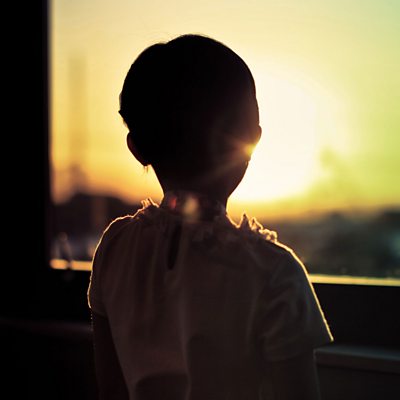Episode details

Available for over a year
If you were a child any time between 1965 and 1978, you probably remember John Noakes, the Blue Peter presenter who died on Sunday. It all seems an age ago - children and their parents (in those days, most likely mothers), gathering round an actual television set, taking delight in John Noakes’s struggles with the over enthusiastic Shep or his mishaps with a small incontinent elephant, at a time when the height of childhood ambition was winning a gold Blue Peter badge. Today, when gathering round a TV set is going by the board, and when ever younger children are glued to their smart phones, viewing we know not what, it’s hard not to indulge in some nostalgia for a lost land of innocence. But is ‘indulge’ the right word there? It is difficult, I think, to take a balanced view of contemporary childhood, lived in a digital world which was barely dreamt of at the beginning of this century, let alone in the closing decades of the last one. Put stories of sexting and cyber-bullying alongside the possibility of children sourcing any amount of lurid material, and we have the ingredients not only for some serious wistfulness, but for a possible overreaction to the current state of affairs. Thus the freedom which many of us recall as the best part of our childhoods, some parents end up denying to their own children – certainly these modern children can’t wander the countryside as seventies children often say they did, but nor can they wander freely in the digital realm as parents turn to various tracking devices which monitor or block children’s internet usage. Parents naturally worry and want to ensure the safety of their offspring – but what should most concern us for our children in the internet age? I think I can get at what bothers me by saying that if my age cohort remembers fondly from childhood a likeable TV presenter, the danger of the internet is that it encourages all of us, even children, to be presenters of ourselves. Facebook, Instagram, Snapchat, or whatever, are essentially tools for show casing ourselves - thereby, however, rendering us open to judgment. We hope that we will be liked, ‘favourited’, gain followers, but to do that we need to be interesting, cool, attractive, or likeable. Protecting our children from unwelcome content is one thing – protecting them from the burden of becoming young presenters of themselves in a critical environment is another. It might seem odd for a Christian to be worried about the burden of being open to judgment. Christian prayers speak of a last judgment and address God as a judge. But that sense of judgment – a sense that what we do and who we are really matters - has always had its place alongside a faith in God’s overwhelming and abiding mercy. The story we call the story of the prodigal son is wrongly named in a way, since the focus of the story is not how far the prodigal strayed, but how ready his father was to welcome him back. Social media is not exactly as forgiving, and parents may struggle to be. But in the harsh world of internet judgment, perhaps what is most important is not simply trying to prevent children from straying, but ensuring that they know of a different and generous judgment if they do.
Programme Website